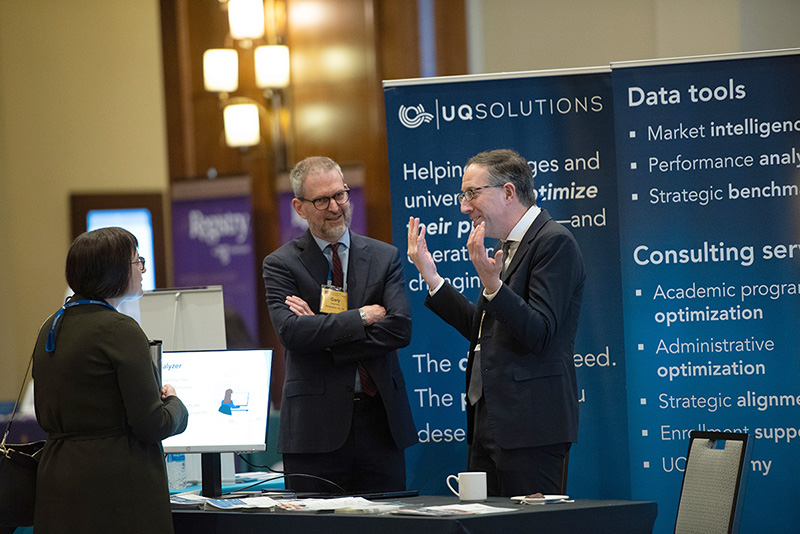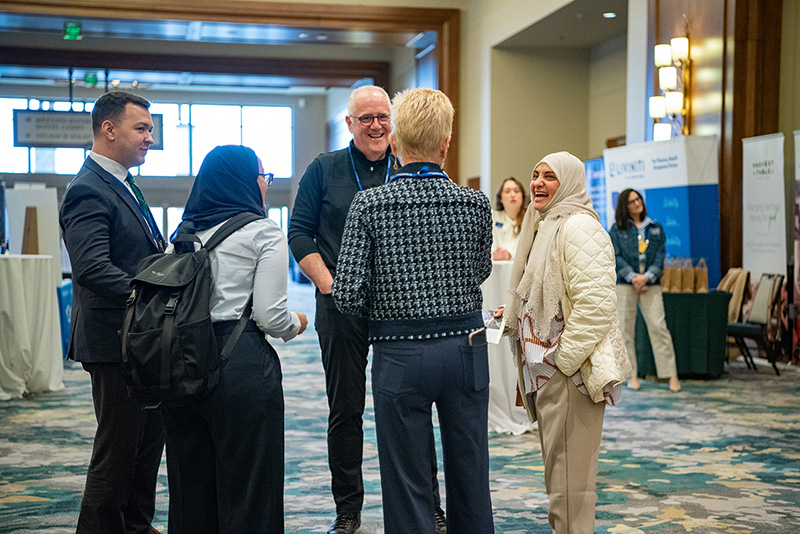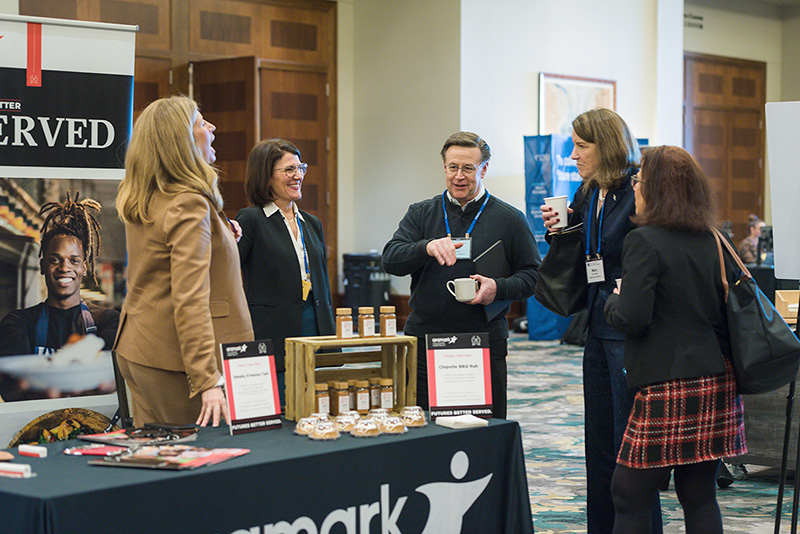The theme of the Presidents Institute was Engaging Communities, and participants explored ways colleges and universities can effectively engage communities and acquire tools to help reframe disruption and pursue new opportunities. Plenary panels offered direction and strategic advice on mitigating conflict, preserving cultures of free expression, and effectively navigating the federal policy agenda. Concurrent sessions and workshops provided insights and interaction from peers on subjects such as financial sustainability, legal challenges, belonging, data management and technology, graduate programming, and more.
Plenary Sessions
Topics for the plenary sessions at the Presidents Institute focused on the state of higher education and the role of leadership and institutions within that space. While these topics varied widely, the main conclusion was that as a sector, and as humans, we are stronger when we work together to solve problems, overcome conflict, and put students first.
The opening plenary session, “Building Partnerships between Campus and Community,” featured Richard Guarasci, president emeritus of Wagner College (NY), and author of Neighborhood Democracy. He began by outlining the all-too-familiar financial, political, and societal crises that challenge higher education.
Guarasci then offered solutions in the form of what he called the “civic imperative.” Institutions of independent higher education should create partnerships or take partnerships to new levels to give underserved communities an ally or anchor. Institutions can build civic engagement in campus-wide programs and curricula based on their experiences with the community. Campus partners can build pipelines to increase K–16 educational success, raise civic knowledge and participation, and decrease class and race inequality. According to Guarasci, small, independent colleges are uniquely positioned to do this work and position themselves to learn from and with communities.
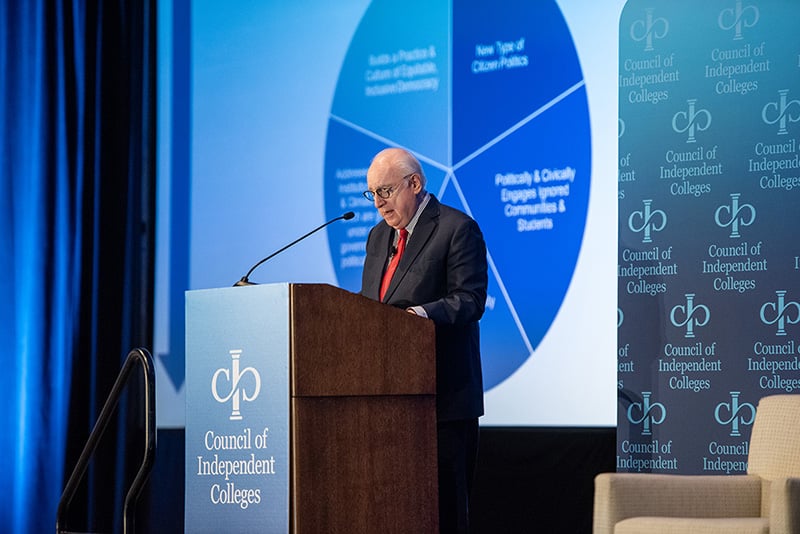
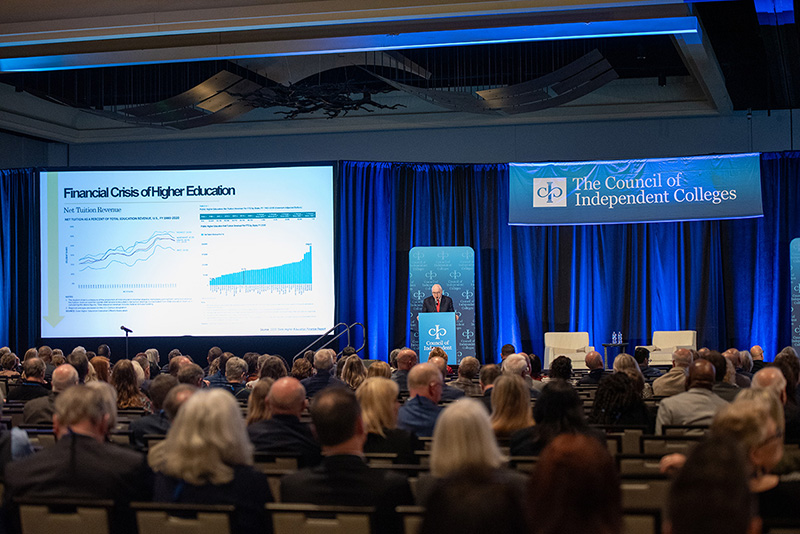
The second plenary session and Richard Ekman Keynote Address in Higher Education, “Breaking the Spell of High Conflict,” featured Amanda Ripley, bestselling author, journalist, and co-founder of Good Conflict, a media and training company that helps people reimagine conflict. Ripley began by showing examples of how easy it can be to create conflict from “us versus them” thinking and communication. She defined the difference between good conflict (which allows us to grow personally and professionally and leads to connection, understanding, and options) and high conflict (which becomes self-perpetuating and all-consuming, and leads everyone to end up worse).
Ripley offered strategies to foster good conflict and avoid high conflict “accelerators”: humiliation, corruption, binary group identity, and conflict entrepreneurships. She finished by offering this wisdom: Mediation is successful if you emerge with a better understanding of the other person/side, yourself, or the problem. Half of what people want in conflict is to be heard, which means you really just have to listen.
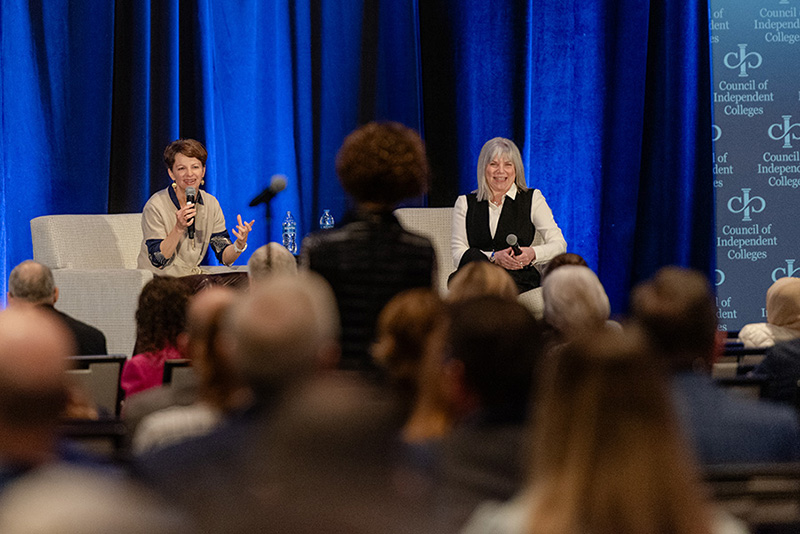
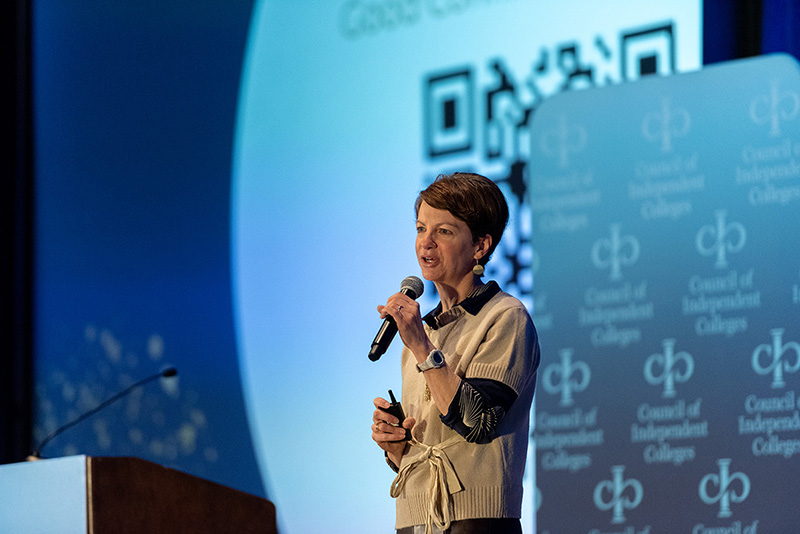
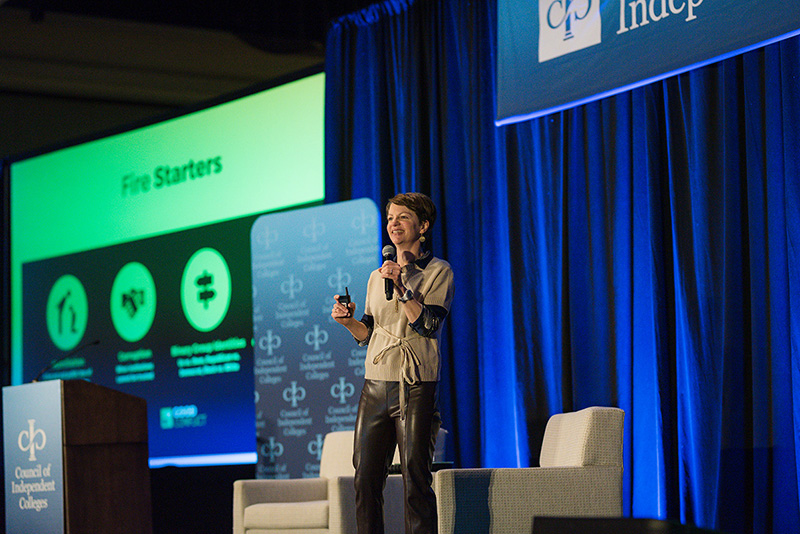
The third plenary session was called “Campus, Community, and Free Expression,” and featured a panel discussion. Tony Banout, executive director, Forum for Free Inquiry and Expression, University of Chicago (IL); Kristen Shahverdian, program director, Campus Free Speech, PEN America; and Lori S. White, president, DePauw University (IN), shared their thoughts about developing campus free expression policies, with Jacqueline Pfeffer Merrill, director of CIC’s Campus Free Expression Project, moderating the discussion.
The insights of the panel focused on ways to approach and implement free expression policies and statements, including consideration for the affected stakeholders on campus and in the community; training and resources for faculty, staff, and students; differences between academic freedom and freedom of expression; and institutional values articulated in policy and campus culture. Resources such as the Chicago Principles on Free Expression and DePauw University’s Policy and Statement on Free Expression were also referenced. The panel ended with a quote from Voltaire: “I disapprove of what you say, but I will defend to the death your right to say it.”
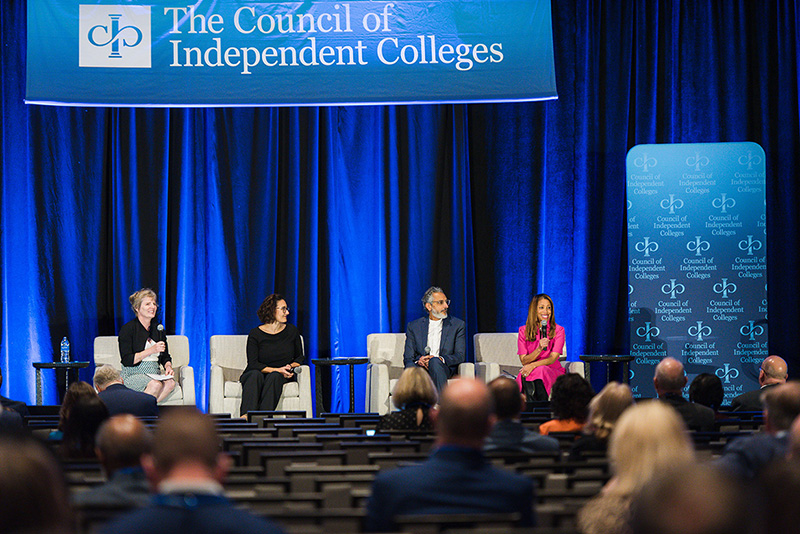
The closing plenary session, “The Policy Agenda for Independent Higher Education,” featured a discussion between Marjorie Hass, president of CIC, and Barbara K. Mistick, president of the National Association of Independent Colleges and Universities (NAICU). Both organizations play an important role in representing, supporting, and advocating for private, independent colleges and universities. Hass and Mistick spoke about the importance of representing member institutions in the federal government, maintaining relationships with elected officials and representatives, and taking collective, urgent action as a sector. They acknowledged that the new administration could pose both challenges and opportunities for independent higher education.
Hass and Mistick discussed potential executive actions including reforming or eliminating the Department of Education; limiting DEI initiatives, creating new barriers for undocumented and international students; and investing in work-based learning. They suggested that institutions keep abreast of the issues, implement clear policies, and centralize campus responses. They concluded that putting students first and creating a “network of champions” by educating stakeholders on policy and impact is the best path forward in divisive times ahead.
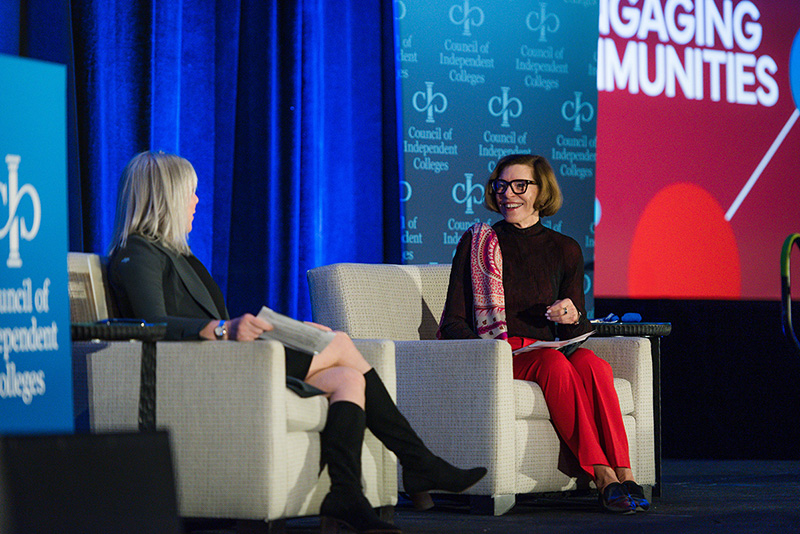
Concurrent Sessions and High Conflict Case Study Sessions
The Presidents Institute offered many engaging concurrent sessions, including “Building and Keeping Executive Teams,” “Leveraging Career Center Collaborations to Build Student Success,” “A Call for Thoughtful Presidential Transitions,” “Creating a Resilient Presidency,” and “Understanding the Election Results and the Economic Implications for Higher Education.”
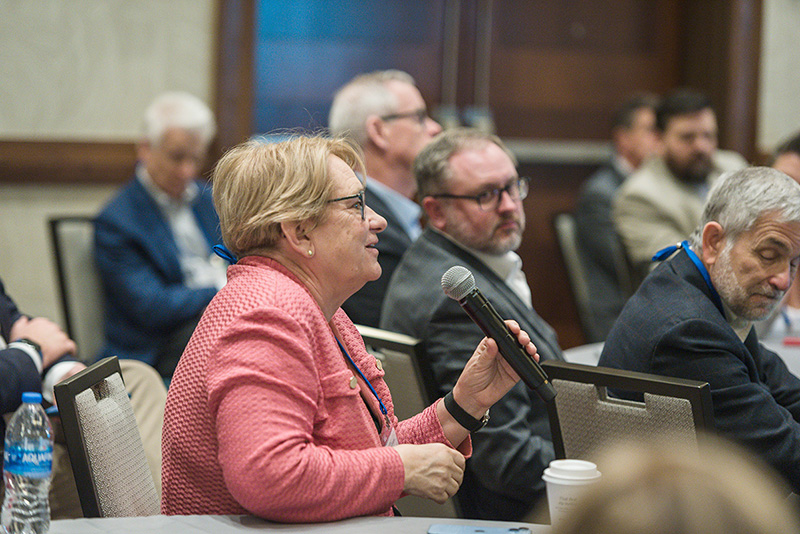
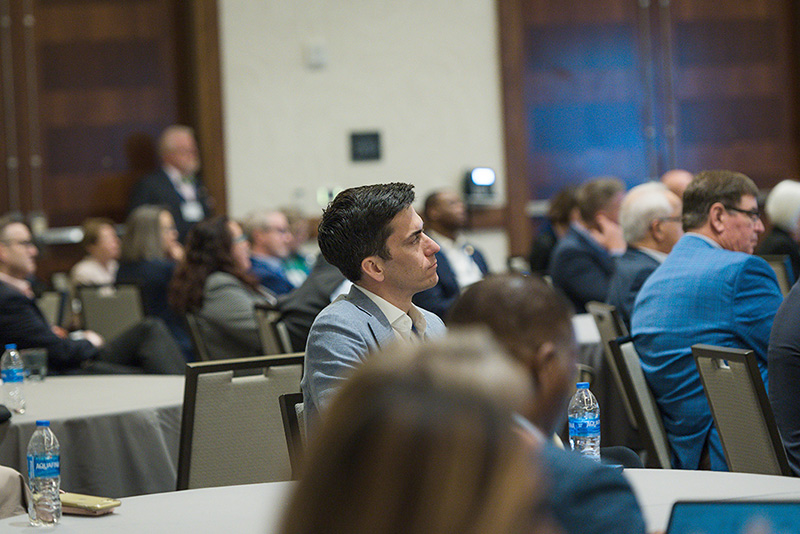
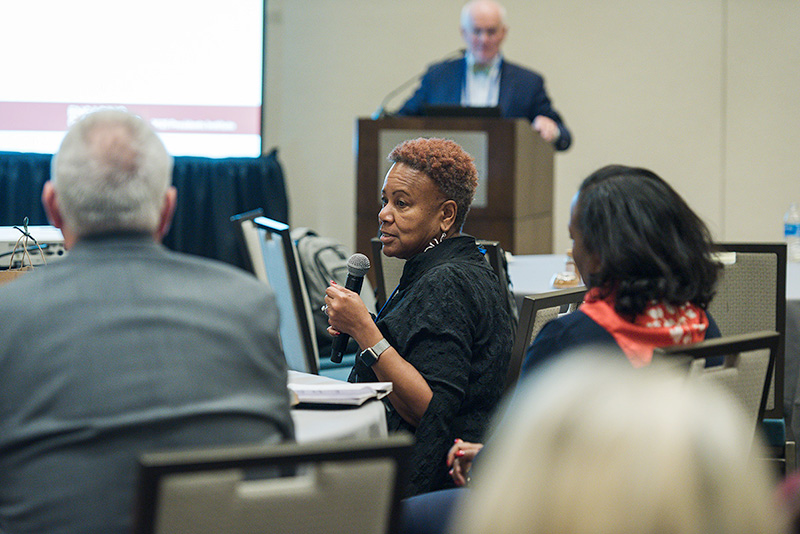
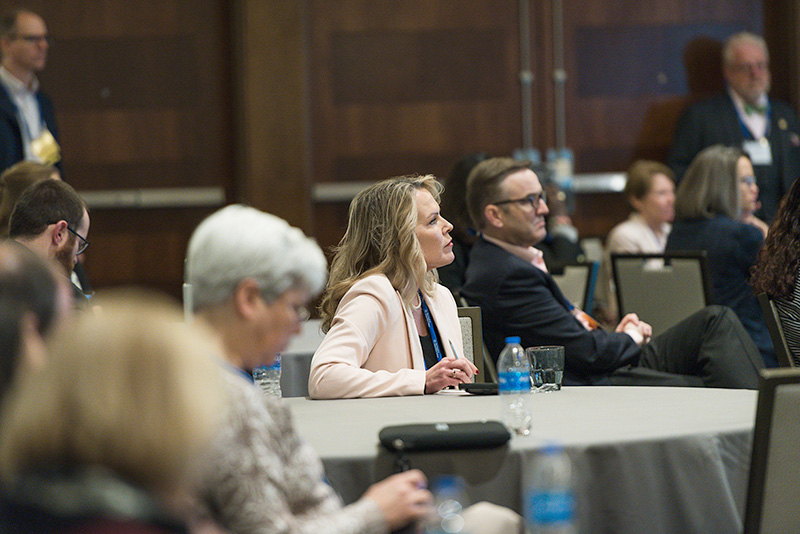
CIC offered case studies directly following the plenary session, “Breaking the Spell of High Conflict,” for participants to collaboratively apply high conflict prevention lessons to conflict scenarios involving faculty and staff; alumni and donors; and students and parents.
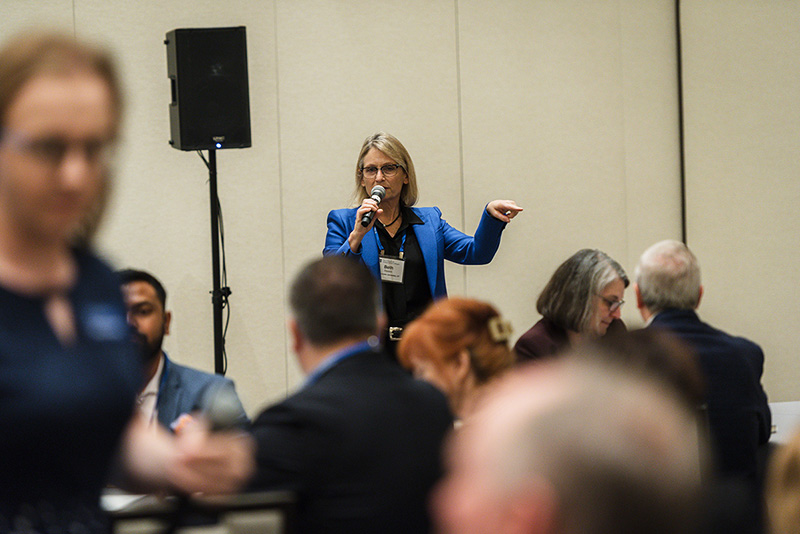
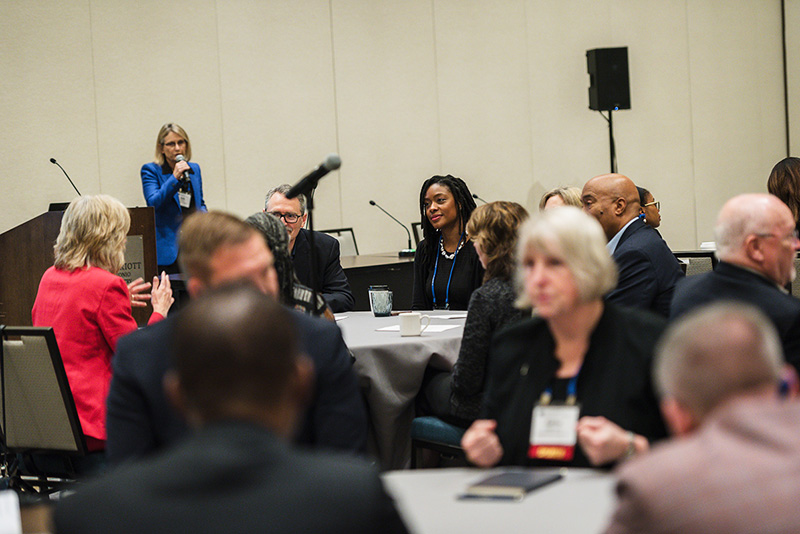
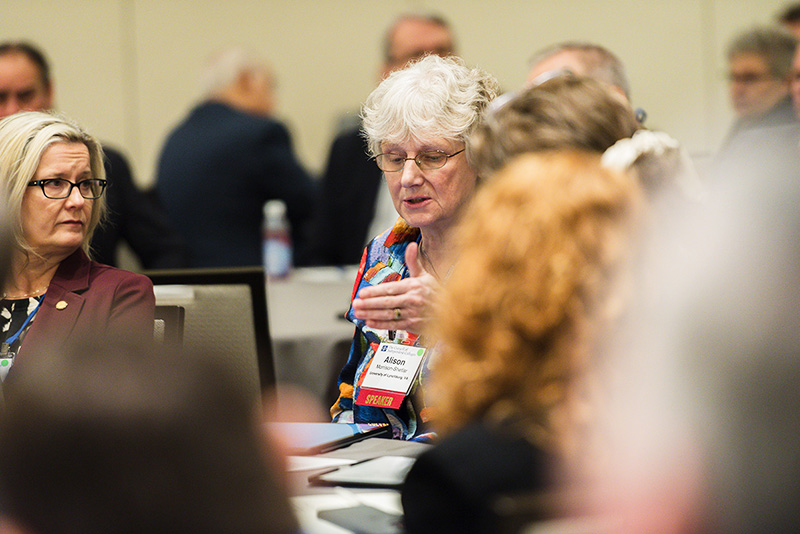
Other Featured Sessions and Highlights
To capitalize on this year’s theme of Engaging Communities, CIC hosted the Celebration of Independent Higher Education at the off-site Knibbe Ranch, a historic local ranch that provided an authentic backdrop for an enjoyable celebration and connected participants to South Texas culture.
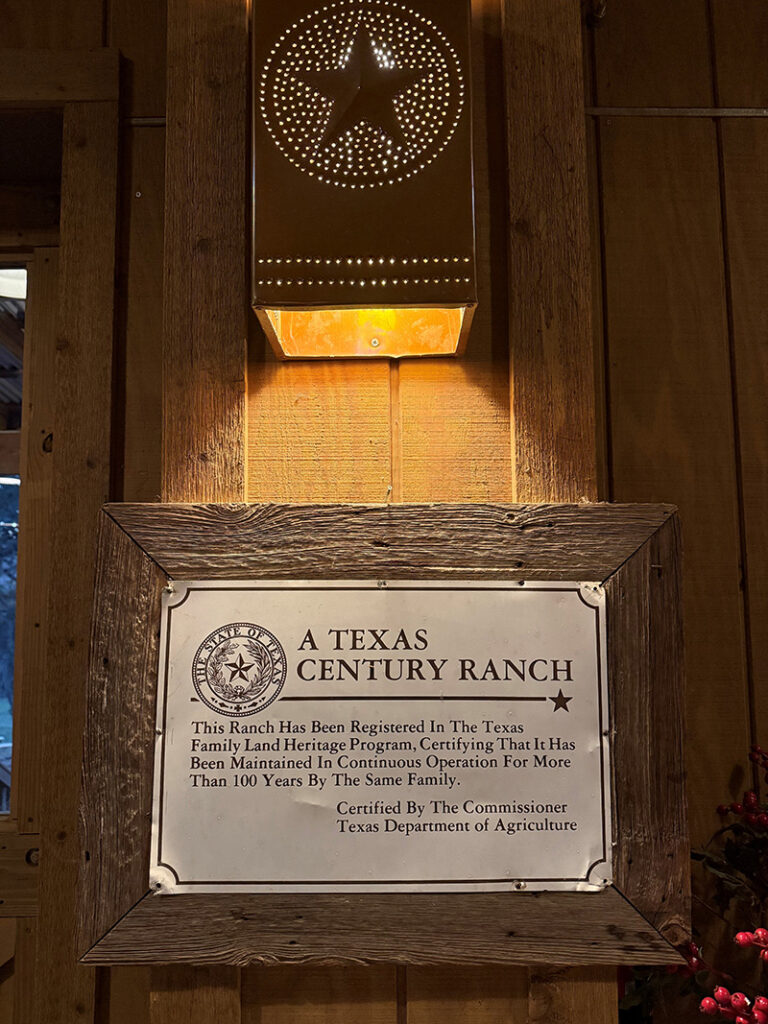
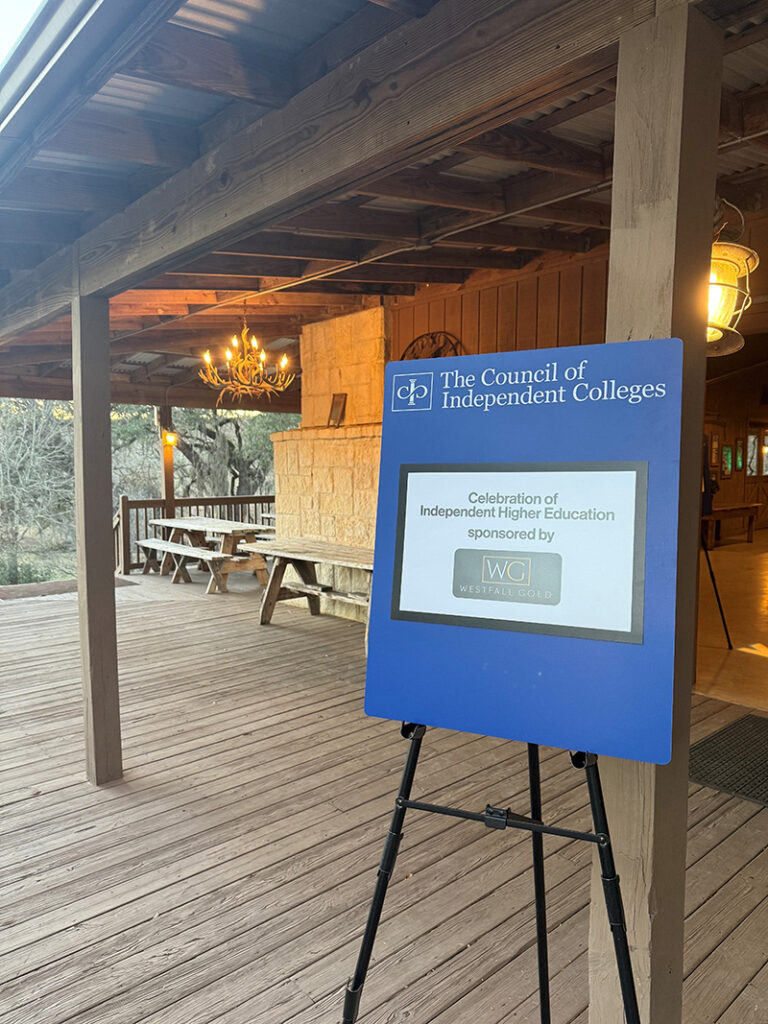
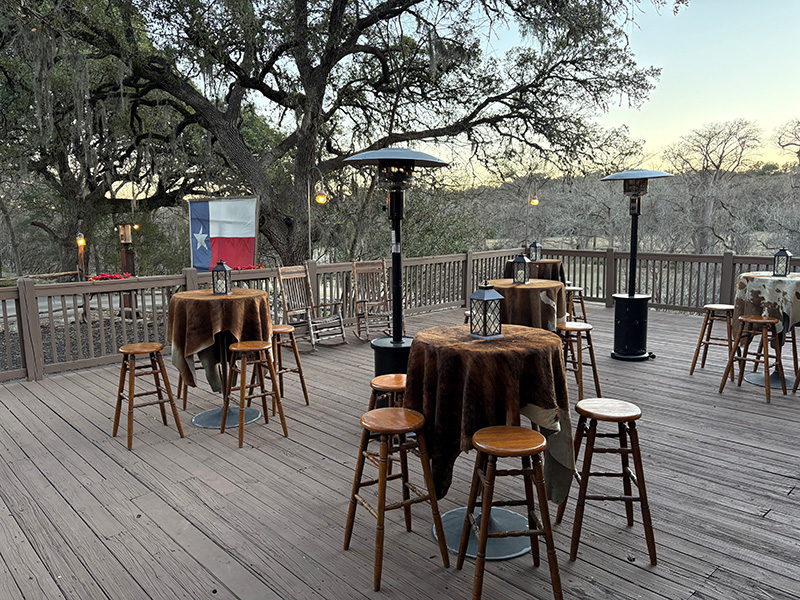
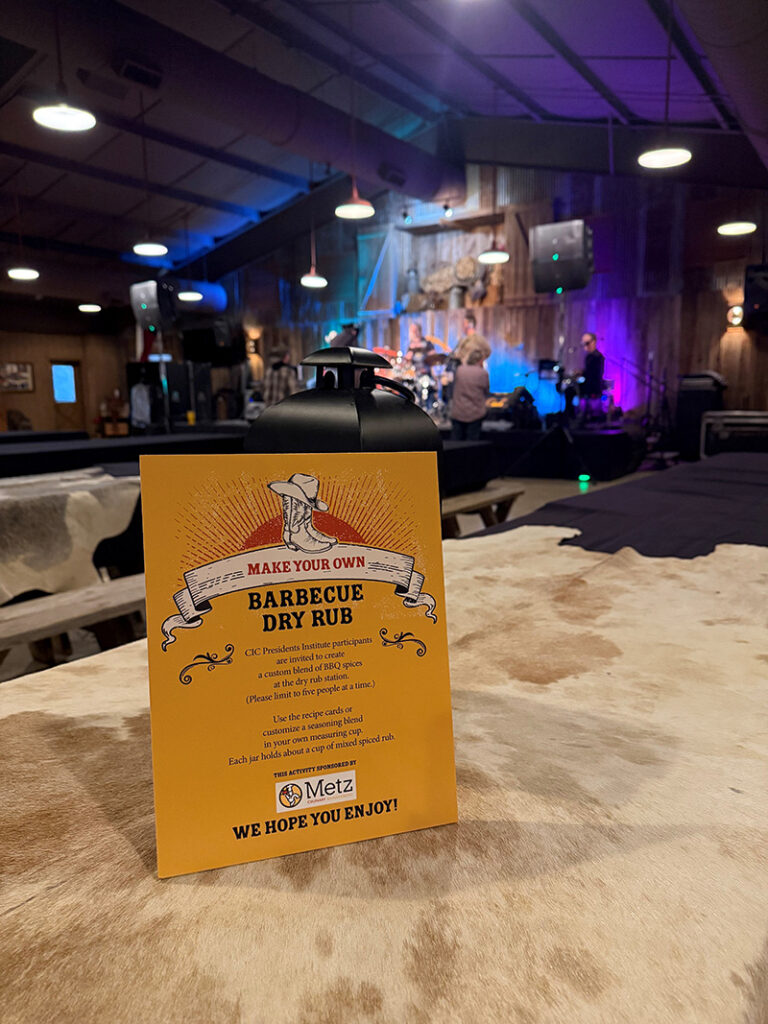

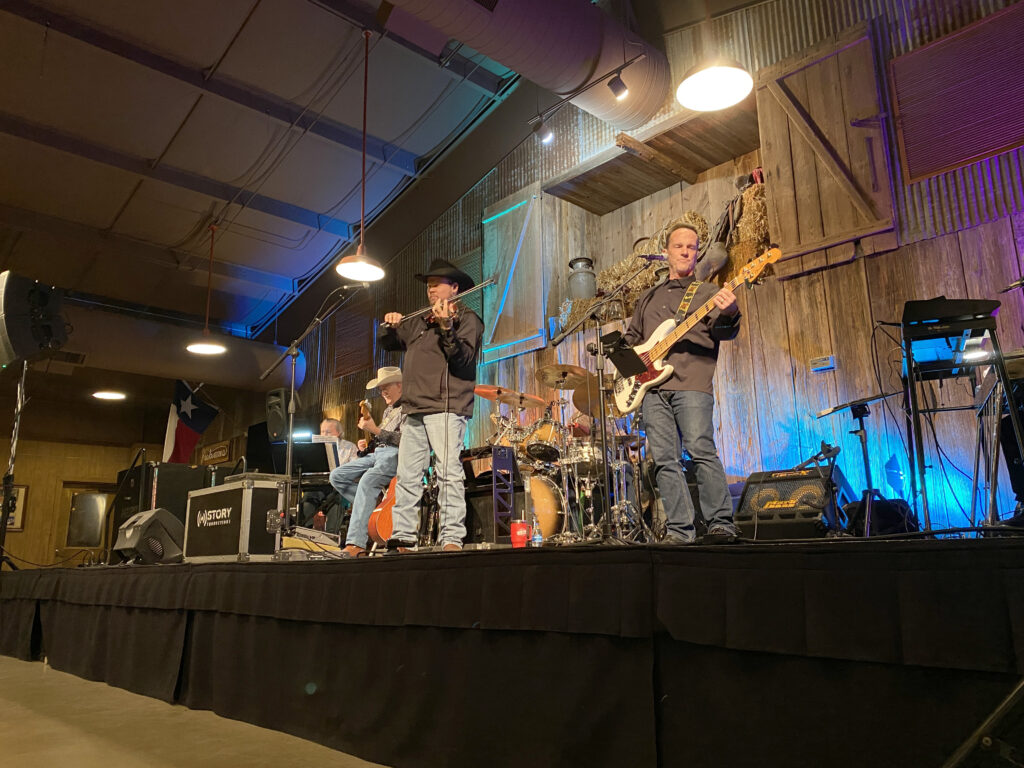
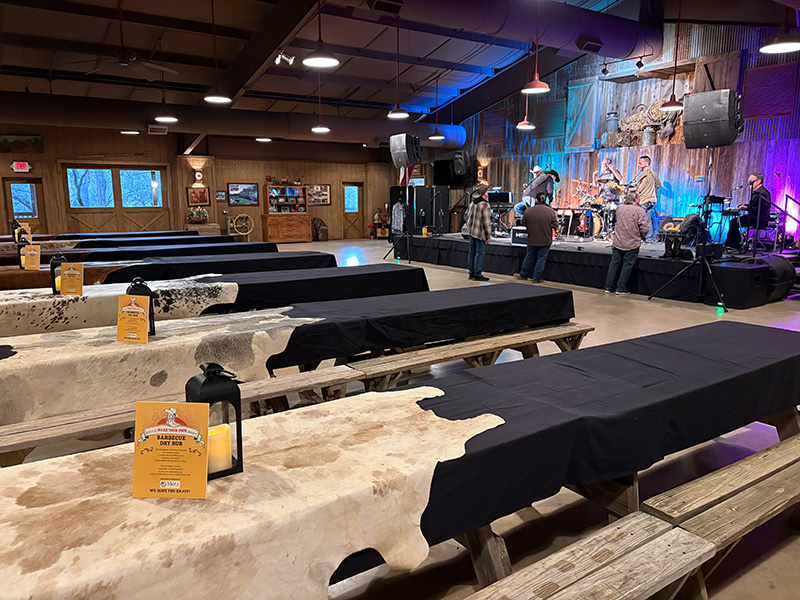
Sometimes open only to currently serving college and university presidents, Discussion Sessions and Peer Support Sessions offered an opportunity facilitate the building of trusted peer support groups and discuss the most pressing and difficult issues facing independent higher education, such as financial sustainability, perceptions of higher education’s value, mergers and partnerships, and technology and AI. The topics were based on PI registrant feedback.
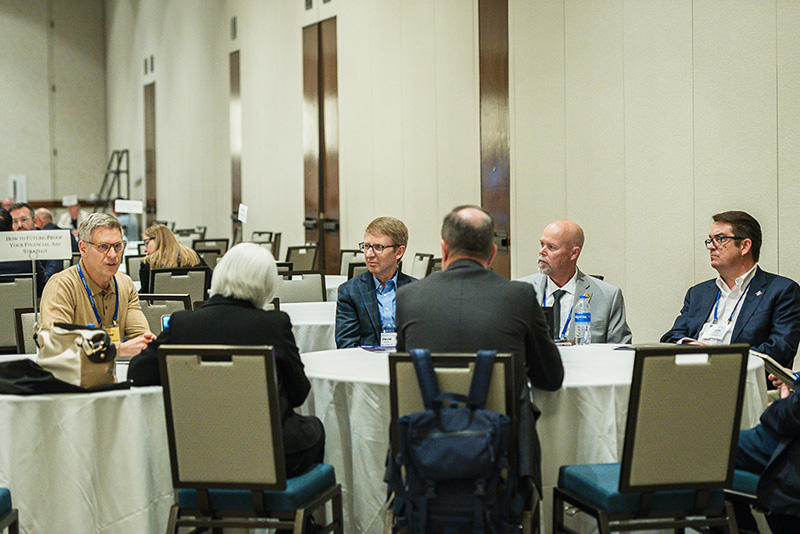
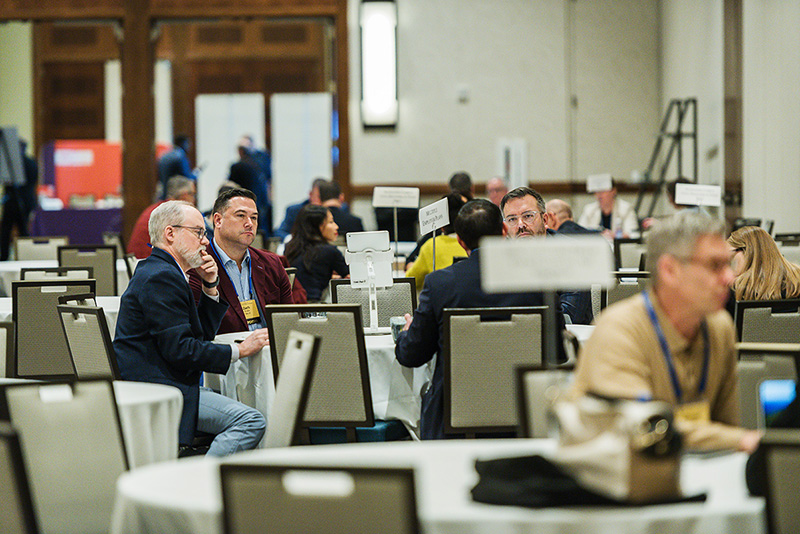
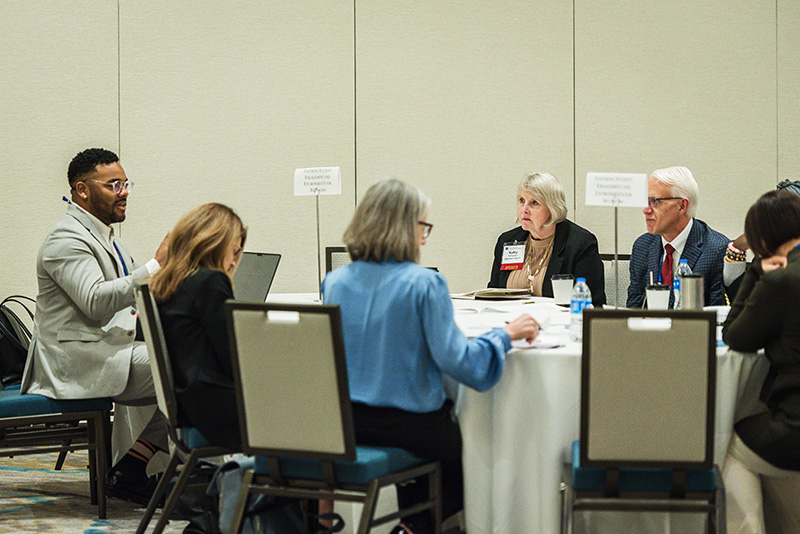
Immediately preceding the Institute, CIC offered the New Presidents Program for presidents who have been in the role for less than two years and the concurrent Spouses and Partners of New Presidents Program. Participants of the Presidential Renewal Program, a program designed to support the personal revitalization of experienced presidents, also met for the Winter Seminar. Immediately following the Institute, registrants had opportunities to participate in workshops on financial challenges and board relationships. These programs and gatherings provided additional opportunities for coaching, mentoring, inspiration, and support on issues specific to these roles.
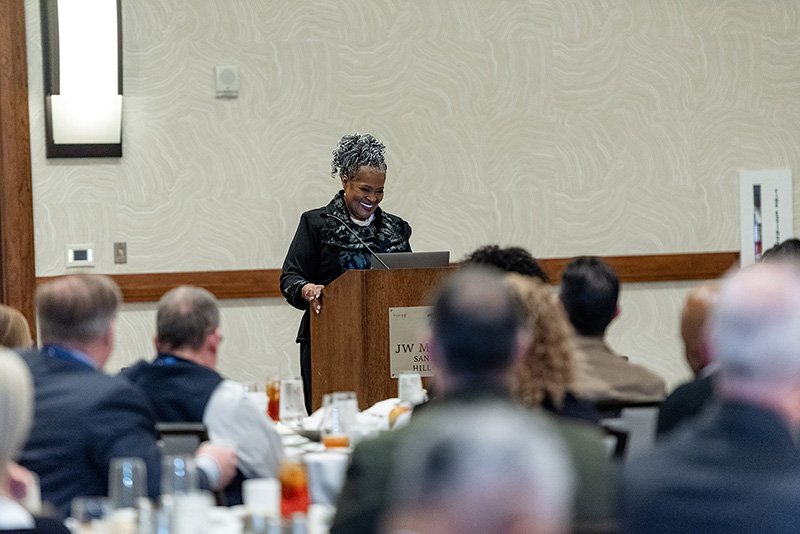
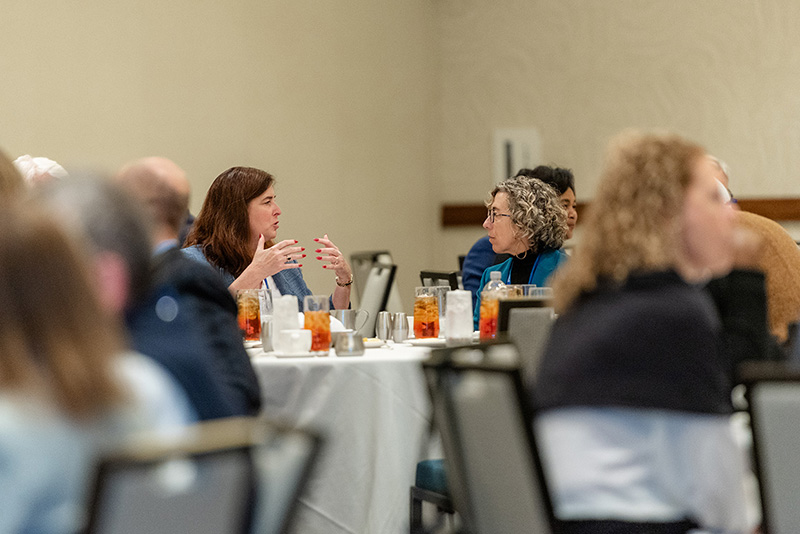
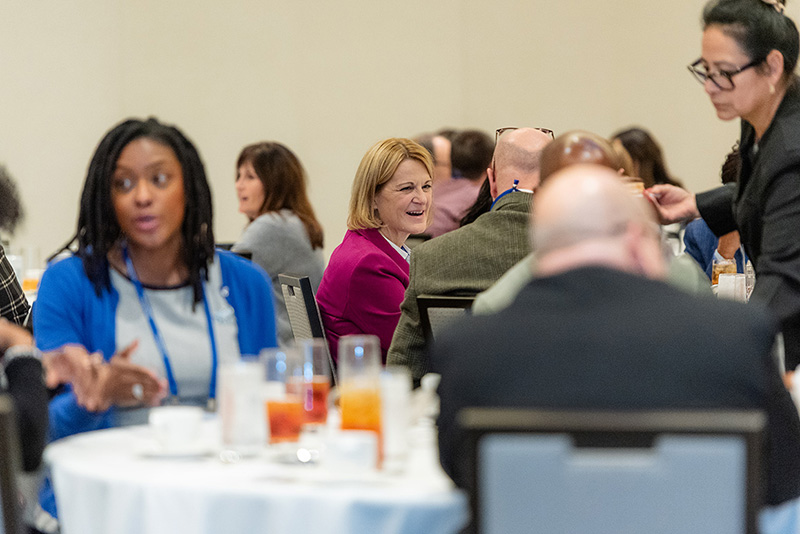
The 2025 Presidents Institute had 75 sponsors, including 15 new sponsors. Thank you to all of our sponsors for their generous support of this year’s Institute. The conference was a big success, thanks in large part to their participation.
